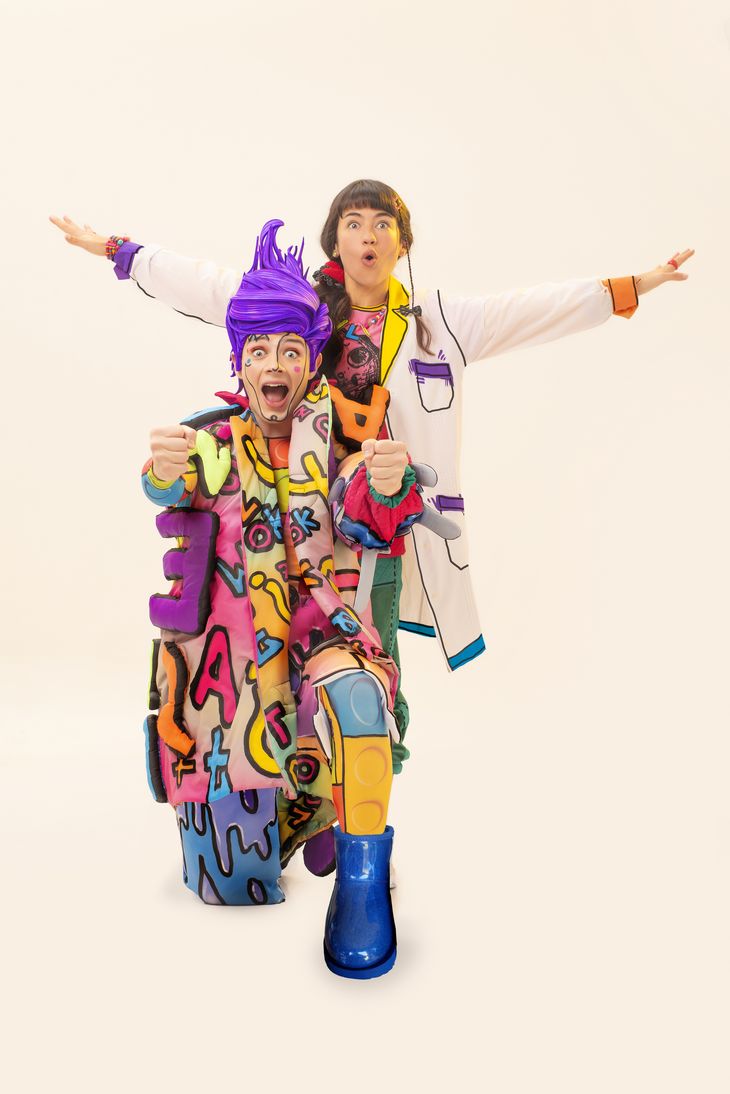From “Dear Evan”whose protagonist is a lonely boy who suffers from anxiety disorders recently “Goyo” or before “The Curious Incident of the Dog in the Night-Time” Both about young people with Asperger’s syndrome, works and series continue to be released that seek to shed light on these differences and appeal to inclusion. “Lexi, let’s talk about Dyslexia”of Delfina Perri, It’s about a 9-year-old girl who feels like she’s never enough. She does poorly at school, she gets scolded, she gets bad grades and her great imagination isn’t enough to understand what’s happening to her until Lexi appears, a funny character who will accompany her throughout her life.
Just remember series like “Atypical”, “The Good Doctor”, “My name is Khan” or the pioneering and unforgettable “Rainman”, to bring the theme from a humorous perspective to address difficult topics that are worth knowing.
With music by Diego Lozano, vocal direction of Eugenia Gil Rodriguez and general management of Lali Vidal and Federico Fedele, “Lexi” can be seen from Wednesday to Sunday at El Picadero. We spoke with Perri.
Journalist: Why did you write a work about dyslexia? Where does your connection to this problem come from?
Delfiina Perri: I am a drama teacher and we started to notice more and more children with dyslexia, 20% in a classroom, and in general the parents resisted the psychodiagnostics when they were asked for it, the children hid it from their classmates, it was lived with shame, little was known about the adjustments that had to be made with the children, so we began to inquire about what was known about dyslexia and the children said it was an eye problem, an illness, a disability, “it’s that thing where you fall to the floor and shake yourself.” There was so much misinformation that we wanted to make it visible. My language is theater, which was initially for the educational community and since it had such a positive impact, it reached the ears of DIFAM Argentina, who proposed that I take it to Corrientes Street.
Q: What is known about dyslexia?
DP: It is hereditary, it is a different operating system, a different way of processing language in the brain and the reality is that children suffer because the educational system is based on the written code, which is the way of transmitting knowledge. Copying from the blackboard, reading text, a book. 20% of the world’s population suffers from dyslexia but only 4% is diagnosed and many adults find out that they have it because a child or nephew is diagnosed. They were not lazy but had dyslexia. The pattern of difficulties is the lack of concentration, orientation, confusion between right and left, confusion of letters, which affects reading and writing. From the third grade onwards, knowledge is imparted in this way and they are left behind.
LEXI Press Ph Nacho Lunadei 2.jpg
Q.. What can be added from the skills side?
DP: Creativity, resilience, exploration, problem solving, lateral thinking, empathy, emotional intelligence. These skills are valued worldwide today, for example Linkedin designed a skills button that is dyslexic thinking. Recruitment systems are changing because these skills are valued and others can be replaced by Artificial Intelligence.
Q: What was the challenge in wanting to tell this as a play?
DP: It was hard for me to write this story without it being a drama because the kids who suffer from this lack of understanding tend to have their self-esteem very damaged, so I couldn’t find a way to write something positive until Lexi appeared, who comes to show her skills.
Q: In recent times there has been progress towards inclusion and integration. How do you see this?
DP: There is a willingness to help, but also a lack of knowledge. Together with the work, we designed a podcast aimed at parents and teachers, so that they can learn about dyslexia and the adjustments that can be made in the classroom. If they are not made, it is because they do not know how. I do not know any teachers who want to fail students, but rather that many times we do not know how to help. We still support an old educational system that would be better off focusing on projects and developing these key skills for evolution.
Q: Some plays and series explore different syndromes or disorders. What does theatre contribute?
DP: The beauty of theatre is that one can appeal to emotion, commitment, when one manages to generate empathy with the character and in that way it becomes more effective. In “Lexi” we say harsh things but we do it through humour, they invite reflection without offending. Theatre has functioned as an educator and trainer since its origins, it is important to recover that role of theatre in society.
Source: Ambito
I am an author and journalist who has worked in the entertainment industry for over a decade. I currently work as a news editor at a major news website, and my focus is on covering the latest trends in entertainment. I also write occasional pieces for other outlets, and have authored two books about the entertainment industry.




